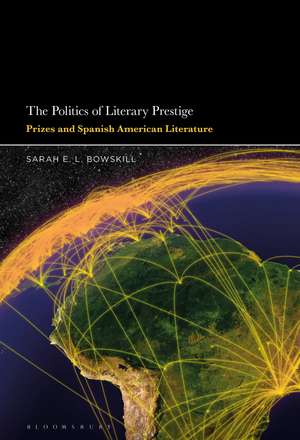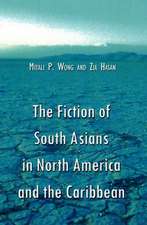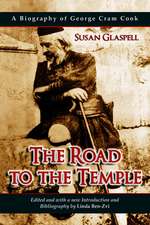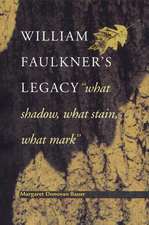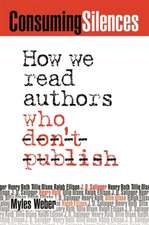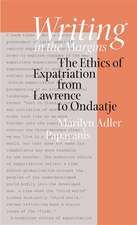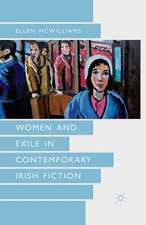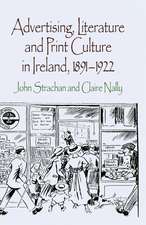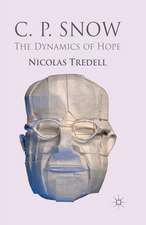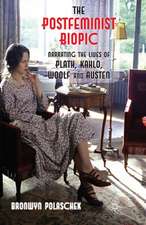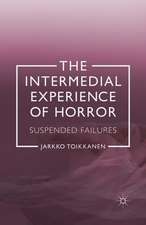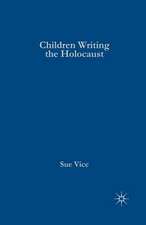The Politics of Literary Prestige: Prizes and Spanish American Literature
Autor Dr Sarah E.L. Bowskillen Limba Engleză Paperback – 29 noi 2023
| Toate formatele și edițiile | Preț | Express |
|---|---|---|
| Paperback (1) | 190.75 lei 6-8 săpt. | |
| Bloomsbury Publishing – 29 noi 2023 | 190.75 lei 6-8 săpt. | |
| Hardback (1) | 471.12 lei 3-5 săpt. | +25.76 lei 5-11 zile |
| Bloomsbury Publishing – 4 mai 2022 | 471.12 lei 3-5 săpt. | +25.76 lei 5-11 zile |
Preț: 190.75 lei
Preț vechi: 249.05 lei
-23% Nou
Puncte Express: 286
Preț estimativ în valută:
36.51€ • 38.01$ • 30.85£
36.51€ • 38.01$ • 30.85£
Carte tipărită la comandă
Livrare economică 10-24 martie
Preluare comenzi: 021 569.72.76
Specificații
ISBN-13: 9781501376030
ISBN-10: 1501376039
Pagini: 224
Dimensiuni: 152 x 229 x 25 mm
Greutate: 0.31 kg
Editura: Bloomsbury Publishing
Colecția Bloomsbury Academic
Locul publicării:New York, United States
ISBN-10: 1501376039
Pagini: 224
Dimensiuni: 152 x 229 x 25 mm
Greutate: 0.31 kg
Editura: Bloomsbury Publishing
Colecția Bloomsbury Academic
Locul publicării:New York, United States
Caracteristici
The first book-length study of literary prizes in Spanish America, which pays particular attention to the political dimensions of prizes and adds to the body of research that has to date been dominated by an Anglophone context
Notă biografică
Sarah E.L. Bowskill is Senior Lecturer in Latin American Studies at Queen's University Belfast, UK. She is the author of Gender, Nation and the Formation of the Twentieth-Century Mexican Literary Canon (2011).
Cuprins
List of TablesAcknowledgementsIntroduction: Literary Prestige, Politics, the Prize Network and the Roles of the Author in Society1. Literary Prizes, Controversy and the State in Spanish America2. Peninsular Publishers, Spanish American Authors and Prizes for Literature in Spanish3. Spanish American Authors on the World Stage4. Roberto Bolaño, Carmen Boullosa and Fernando Iwasaki Find their Voice in the Prizes Game5. The Premio Biblioteca Breve and the Forgotten Women of the Boom6. Women Winning Prizes: A No Win Situation?7. Prizes for Literatures in Indigenous Languages8. The Never-Ending Network?ReferencesIndex of PrizesGeneral Index
Recenzii
An indictment of some eight decades of literary history, Bowskill's solidly researched book begins by tracing a shift in literary prizes for Spanish-language texts. Starting in the 1940s writers received literary awards, sometimes sponsored by the state itself, for the quality of their work and for their reputation as political authorities. By the end of the 20th century a new type of prized author began to emerge as an allegedly independent and global celebrity on display for photos and tours, sometimes in absence of discussion of the award-winning text. This second brand of recognition favors profit-driven private funding, thanks to publisher-sponsored awards. The question of whether literature has taken a turn for the worse under this change finds a sly answer in chapter 6, which documents the devastating inequity of both sorts of literary prizes. Table after table of data supports Bowskill's 'conservative' estimate: "three quarters of all literary prizes go to male authors". The Politics of Literary Prestige examine a rigged game beyond the usual accusation of merely contemporary decline.
The Politics of Literary Prestige is a valuable addition to and expansion of the ground-breaking work of the likes of Mario Santana, Deborah Cohn and Diana Sorensen on the Lain American Boom and the social, political and cultural networks that supported and promoted it. Using a remarkable range of sources, Bowskill covers the Boom authoritatively, but also revealingly unveils the missing women writers of the Boom, and offers new perspectives on developments with regard to gender and indigenous identity, as well as surveying the most recent directions in the literary prize circuit and the alternatives to it. She also penetratingly discusses literature about literary prizes. This is an important book which is hugely informative and insightful, but which also makes visible the politics of literary prestige and nuances the social role of the author beyond that of public intellectual. It is indispensable reading for anyone who wishes to understand Spanish American literature in the context of its national and global processes of production and consumption.
This is a much-needed and very ambitious study of the literary prize system in Spanish America and how complex and ever-changing cultural, political and identity factors underline the way in which prizes are organized at national, continental and transnational levels. The study argues very compellingly for the concept of prize networks, thus highlighting the reciprocal or relational nature of literary prizes across the Spanish American world, and its multiple methodologies - engaging the sociology of books, book history and cultural studies - have produced a vast, meticulously-researched and very original study that develops new paradigms about how prizes function in many contexts. It will be invaluable to all those study Spanish-language texts within their contexts of production, promotion and reception.
Since The Economy of Prestige (2005) by J. English, we have been waiting for a comprehensive study on the literary prizes for Spanish American Literatures. Sarah E.L. Bowskill succeeds in presenting her case that the network of national and international prizes is a system interwoven by politics of prestige intersected by nation-state imaginaries, publishers' plans and markets, gender and linguistic identities.
Bowskill has a fine eye for detail and information that may seem "gossipy." Her attention and dependence on digital resources, charts, and archives is impressive
The Politics of Literary Prestige is a valuable addition to and expansion of the ground-breaking work of the likes of Mario Santana, Deborah Cohn and Diana Sorensen on the Lain American Boom and the social, political and cultural networks that supported and promoted it. Using a remarkable range of sources, Bowskill covers the Boom authoritatively, but also revealingly unveils the missing women writers of the Boom, and offers new perspectives on developments with regard to gender and indigenous identity, as well as surveying the most recent directions in the literary prize circuit and the alternatives to it. She also penetratingly discusses literature about literary prizes. This is an important book which is hugely informative and insightful, but which also makes visible the politics of literary prestige and nuances the social role of the author beyond that of public intellectual. It is indispensable reading for anyone who wishes to understand Spanish American literature in the context of its national and global processes of production and consumption.
This is a much-needed and very ambitious study of the literary prize system in Spanish America and how complex and ever-changing cultural, political and identity factors underline the way in which prizes are organized at national, continental and transnational levels. The study argues very compellingly for the concept of prize networks, thus highlighting the reciprocal or relational nature of literary prizes across the Spanish American world, and its multiple methodologies - engaging the sociology of books, book history and cultural studies - have produced a vast, meticulously-researched and very original study that develops new paradigms about how prizes function in many contexts. It will be invaluable to all those study Spanish-language texts within their contexts of production, promotion and reception.
Since The Economy of Prestige (2005) by J. English, we have been waiting for a comprehensive study on the literary prizes for Spanish American Literatures. Sarah E.L. Bowskill succeeds in presenting her case that the network of national and international prizes is a system interwoven by politics of prestige intersected by nation-state imaginaries, publishers' plans and markets, gender and linguistic identities.
Bowskill has a fine eye for detail and information that may seem "gossipy." Her attention and dependence on digital resources, charts, and archives is impressive
